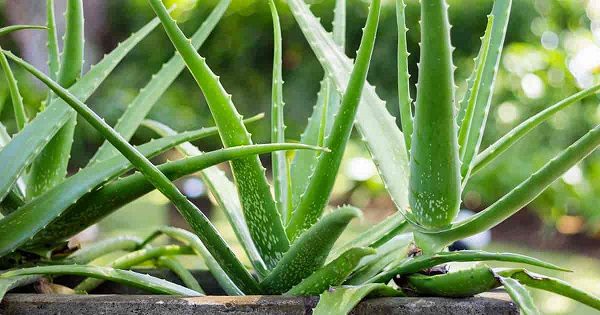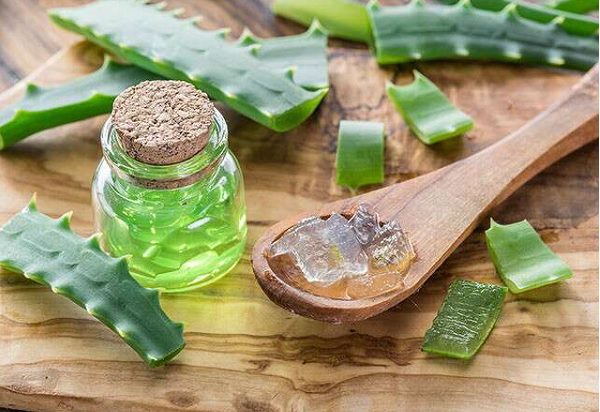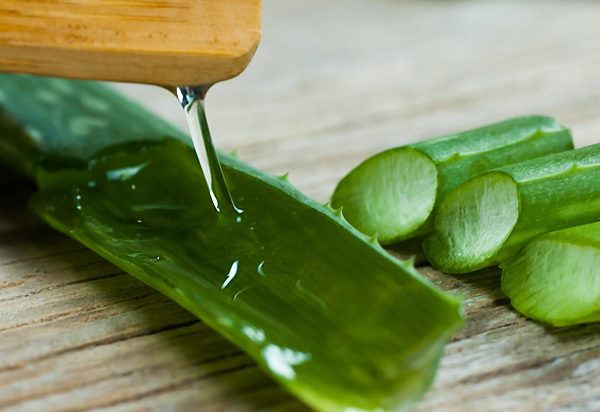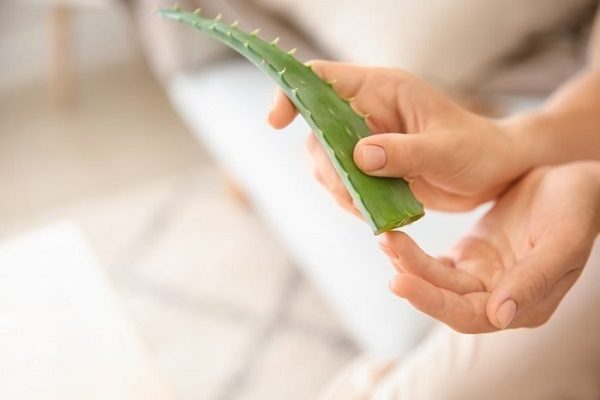
Aloe vera, or Aloe barbadensis, is a thick, short-stemmed plant that stores water in its leaves. It is best known for treating skin injuries, but it also has several other uses that could potentially benefit health.
This miraculous plant is commonly used nowadays as well, but you should know the benefits of aloe vera are only limited to topical application on wounds, scrapes, and burns, as it can also be taken internally and thus improve overall health.
Its minerals, such as zinc, iron, potassium, copper, calcium, magnesium, chromium, selenium, sodium, boost metabolic pathways. Moreover, it is high in important enzymes like amylase and lipase which can help digestion by breaking down fat and sugar molecules. Among the other vitamins, Aloe Vera is a rich source of contains vitamin B12, which is needed for the production of red blood cells. It is also abundant in vitamins A, C, E, B1, B2, B3 (niacin), and B6, folic acid, choline.
Potential benefits of aloe vera
1. It contains healthful plant compounds
The cosmetic, pharmaceutical and food industries use aloe vera extensively, and the plant has an estimated annual market value of $13 billion globally. Each leaf contains a slimy tissue that stores water, and this makes the leaves thick. This water-filled tissue is the “gel” that people associate with aloe vera products.
2. It has antioxidant and antibacterial properties
Antioxidants are important for health. The benefits of aloe vera gel contain powerful antioxidants belonging to a large family of substances known as polyphenols. These polyphenols, along with several other compounds in aloe vera, help inhibit the growth of certain bacteria that can cause infections in humans.

3. It accelerates wound healing
People most often use aloe vera as a topical medication, rubbing it onto the skin rather than consuming it. In fact, it has a long history of use in treating sores, and particularly burns, including sunburn. Studies suggest that it is an effective topical treatment for first and second-degree burns. The evidence for aloe vera helping heal other types of wounds is inconclusive, but the research is promising.
Tooth decay and diseases of the gum are very common health problems. One of the best ways to prevent these conditions is to reduce the buildup of plaque, or bacterial biofilms, on the teeth. Aloe vera is effective in killing the plaque-producing bacterium Streptococcus mutans in the mouth.

5. It helps treat canker sores
Many people experience mouth ulcers, or canker sores, at some point in their lives. These usually form underneath the lip, inside the mouth, and last for about a week. Studies have shown that aloe vera treatment can accelerate the healing of mouth ulcers. For example, in a 7-day study of 180 people with recurrent mouth ulcers, applying an aloe vera patch to the area was effective in reducing the size of the ulcers.
Aloe vera may also help treat constipation. This time it is the latex, not the gel, that provides the benefits. The latex is a sticky yellow residue present just under the skin of the leaf. The key compound responsible for this effect is called aloin, or barbaloin, which has well-established laxative effects. However, people have raised concerns about safety with frequent use. For this reason, aloe latex has not been available in the U.S. as an over-the-counter medication since 2002.

7. It may improve skin and prevent wrinkles
There is some preliminary evidence to suggest that topical aloe vera gel can slow the aging of the skin. In a 2009 study of 30 females over the age of 45, taking oral aloe vera gel increased collagen production and improved skin elasticity over a 90-day period. Aloe vera could help the skin retain moisture and improve skin integrity, which could benefit dry skin conditions.
8. It lowers blood sugar levels
People sometimes use aloe vera as a remedy for diabetes. This is because it may enhance insulin sensitivity and help improve blood sugar management. For example, a review of eight studies found that aloe vera could have benefits for people with prediabetes or type 2 diabetes due to its effects on glycemic control. However, the quality of the existing studies is not ideal, so scientists do not currently recommend using aloe vera for this purpose.

Aloe vera has a range of therapeutic properties, especially as an ointment for the skin and gums. Oral options should contain decolorized whole leaf extract of aloe vera to minimize risk. A person should always speak to a doctor before using aloe products to treat a condition.




